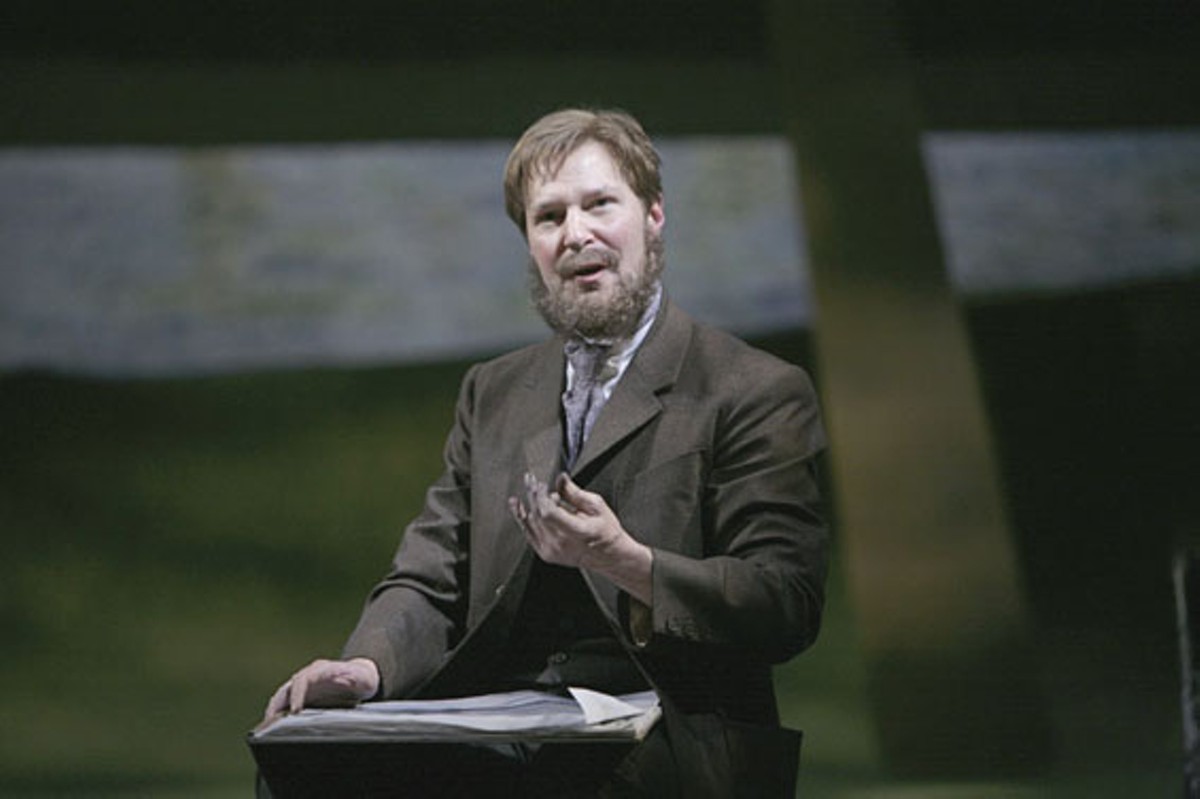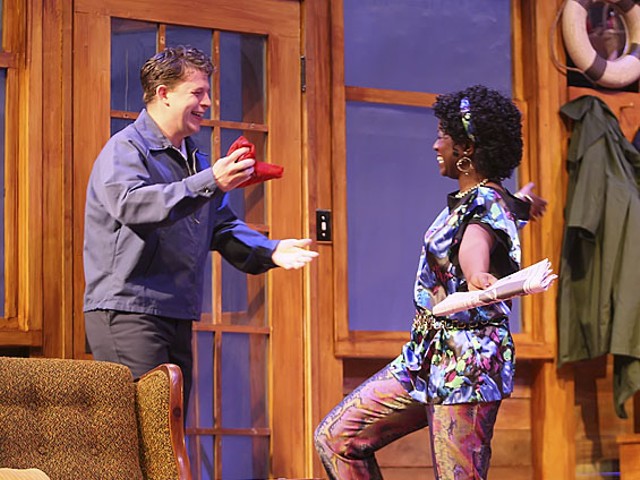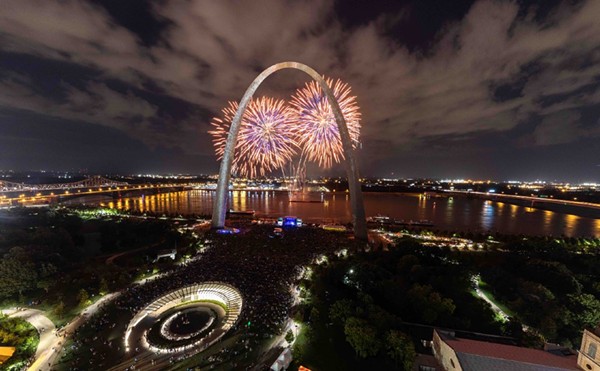As he stands alone in a room crowded with potential investors, a conceptual artist named George bemoans the hoops through which he must jump in order to fund his designs. "Art isn't easy," he sings in dismay. But it's not merely the monetary side of making art that's tough. So too is the creative process itself: so many possibilities. Not only are there countless paths on which the artist can strike out to create something new, there's the danger of simply striking out — there are so many ways to get art wrong. But the Repertory Theatre of St. Louis gets everything right in its sublime staging of Sunday in the Park with George, the timeless 1983 Stephen Sondheim–James Lapine musical about two artists in different centuries, each restless to explore the unknown.
Act One plays out in the 1880s as Georges Seurat (a robust Ron Bohmer) struggles in relative obscurity and poverty to complete his epic painting, A Sunday Afternoon on the Island of La Grande Jatte. When his mistress, the simple-minded Dot (Erin Davie, whose clarity of diction runs rings around that of Bernadette Peters, who created the role), cannot command Georges' attention, she takes their child and moves to America. Even as Seurat's personal life is crumbling, he focuses on his work. ("Color and light/There's only color and light.") In time his concentration is justified. And when, at the end of Act One, the characters who inhabit La Grande Jatte are transmuted to eternal life on Seurat's pointillist canvas, as they sing "Sunday" ("By the blue purple yellow red water/On the green purple yellow red grass..."), the sheer harmony of their sound is a blissful kind of painting by voice.
Act Two, equally audacious, jumps ahead 100 years. We are introduced to Seurat's great-grandson (again portrayed by Bohmer), a successful yet confused conceptual designer in America whose color and light machines (fancifully called chromolumes) are the trendiest sort of art. During a visit to La Grande Jatte, the island in the Seine immortalized by Seurat, time-travel allows George to encounter his great-grandmother Dot. In a scene of translucent simplicity, Bohmer and Davie stand onstage alone singing "Move On." In Sondheim's intricate lyrics, a credo for creativity — "I want to know how to get through/Through to something new" — becomes an elegy of lost love. As the performers gaze into each other's eyes and sing the soaring lines, "We've always belonged together/We will always belong together," the oneness of their blended voices is transporting.
For some inexplicable reason, Sunday in the Park with George is often derided as inaccessible. Yet as performed here, the story should resonate with anyone who has known the exhilaration of the creative process, with anyone who has suffered the throes of unrequited love.
Still, the show doesn't get revived often, and director Rob Ruggiero has made the most of his opportunity. His staging is gorgeously rendered in every facet. Ruggiero has surrounded himself with much of the same gifted support team he often uses at the Goodspeed Opera House in Connecticut. The musical direction by F. Wade Russo, scenic design by Adrian W. Jones, costumes by Alejo Vietti and lighting by John Lasiter remind us of the heights to which theater can ascend when everyone involved is in balance. Perhaps the secret heroes here are Rep artistic director Steven Woolf and managing director Mark Bernstein, who clearly provided Ruggiero and his team with an artistic environment that allowed them to work in comfort.
In what is perhaps the play's most elegiac song, "Beautiful," Georges affirms that through his art he can "revise the world." Surely Sondheim's songs have revised our view of the American musical theater. We are all the beneficiaries of his inventive vision. When at play's end the entire ensemble bows to George, there's a sense that really the actors (if not the characters) are paying homage to Sondheim. But in fact the entire production honors him. Thanks to Ruggiero and everyone involved, the Rep's artful Sunday in the Park with George is a stunning experience of ineffable beauty.






